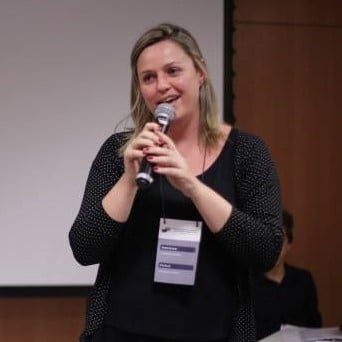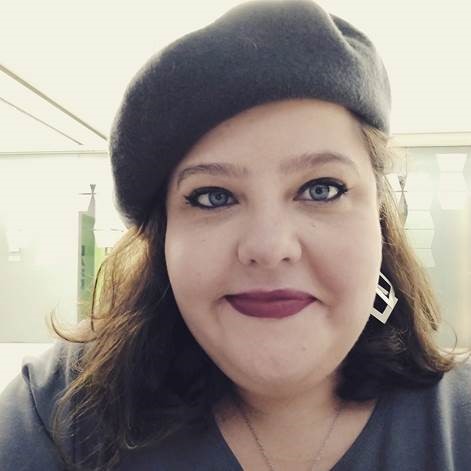The challenges of being a bilingual teacher
As a teacher educator, I continually ask myself how to most effectively prepare teachers with professional knowledge and critical consciousness to engage in meaningful work with learners.
Very recently, the new Guidelines for Plurilingual Education were approved and, according to them, teachers who teach through the additional language in Infant Education or Primary must have a degree in Language or Education and if they teach a specific subject in the other levels, they must have a degree in the area they teach. Besides that, teachers must be proficient in B2 level, and take a 120-hour course or a graduate course on bilingual education.
-Mistakenly, the Guidelines mention only the teachers who teach through the additional language, as the teachers who teach through the children’s mother tongue do not need knowledge related to bilingual education. But this is a topic that will not be addressed in this text.
Here, my proposal is to talk beyond titles or degrees, I will then be talking about some knowledge or stances we, as teachers, need to develop from the perspective I adopt: development of critical consciousness, engagement in good practices and courage.
Firstly, I would like to start by pointing out that, as we all may know, reputable work in the field of bilingual education suggests that educators must have a strong understanding of certain theoretical concepts in the bilingual education field and a deep knowledge of the content areas they work with to optimize school success for bilingual learners.
Beyond this knowledge base, however, there is a call for a deeper critical consciousness about the ways in which bilingual learners are experiencing school and the development of a pedagogy that challenges power relations and inequities, mainly considering that the majority of our bilingual schools are for a very privileged part of our society. It is crucial that these students understand how privileged they are and how unequal and unfair our society is.
In this regard, some culture-specific and situation-specific knowledge is required from the teachers. Furthermore, certain attitudes and beliefs, such as an appreciation for diversity and concern for social justice, must stimulate the motivation to act in consideration of different and unfamiliar perspectives. What I want to draw attention to is that teachers need to develop intercultural sensitiveness as well as the knowledge of other discourses and narratives different from the ones they have learned from their own communities.
In this sense, increasing complexity in perceiving cultural phenomena is seen as the basis of interculturality, which is not primarily about learning facts about other cultures, it is rather about developing more sophisticated categories to understand how others perceive the world.
For an education committed to making people think in order to transform our reality in the world, it is crucial that every teacher understands the world they live in, since we cannot transform what you do not understand. We, therefore, need an interculturally competent teacher, engaged with building democratic and inclusive societies that articulate equality policies with identity policies and able to propose alternatives to the monocultural character and dominant westernized world we live in.
A critical intercultural perspective part of the affirmation of the difference as wealth. It is necessary, therefore, to deconstruct aspects of school dynamics naturalized that prevent us from positively recognizing differences. For this, it is important that teachers sustain a pedagogical practice geared towards decoloniality, that is, oriented towards the deconstruction of paradigms crystallized in the socio-cultural, political-economic, ethnic-racial relations imposed by colonial processes.
Teachers must understand their role: not only make technical and utilitarian teaching of the language and content feasible, but also provide students with linguistic education whose foundation is the conception that teaching is a political task that must aim at developing criticality. For this, teachers need to commit to a work that values difference, be it linguistic, political, social or ethnic as a pedagogical input and as a condition of our humanity.
The second aspect, I will emphasize is the importance to engage in “good practice”, in the sense in which I use the term, is very different from what is meant when teachers are described as using “best practice”. Good practice requires the ability to interrupt automatic classroom and institutional routines in order to inquire, in a rigorous way, into the adequacy of their assumptions about the nature of students’ needs and how to meet them. Teachers who are said to engage in “best practice”, on the other hand, may be only using a teaching approach that has a reputation for being “best”. The reputation may be founded on well- designed and conducted evaluations, or it may only reflect no more than the popularity of the approach.
We all know that there are no “silver bullets” in teaching, and no guaranteed ways to improve student achievement. So, each school and each teacher has to learn how to create the conditions that will produce the results they desire. This is not to say that their efforts cannot be scaffolded on the work of others. But even well researched “best practice” will not deliver the expected results if the teachers who are implementing it cannot make evidence-based decisions about how to adapt it to their own workplaces. Therefore, teachers should incorporate the role of researcher into their own professional lives.
Finally, beyond these challenges, the third aspect I want to address is courage. I also feel the need to shield and defend our work, as teachers, from the sociocultural and political attacks on the teaching profession. We need to be brave to fight against exploitation, coloniality and abusive relations established in our own working environment. We need to be brave to start conversations that schools seem not to be interested in, such as racial and gender issues. We need to be brave to defend the idea that being educated in two languages is a possibility to encounter other perspectives and narratives so that we can critically analyse our own truths and generate other representations of ourselves and the Others.
After addressing these three aspects: development of critical consciousness, engagement in good practices and courage, I would like to add that, despite all the layers of challenges that exist, teachers must maintain a strong commitment and sense of urgency to uphold culture and language as central in the schooling of their learners and understand that teaching and learning are never politically neutral.



